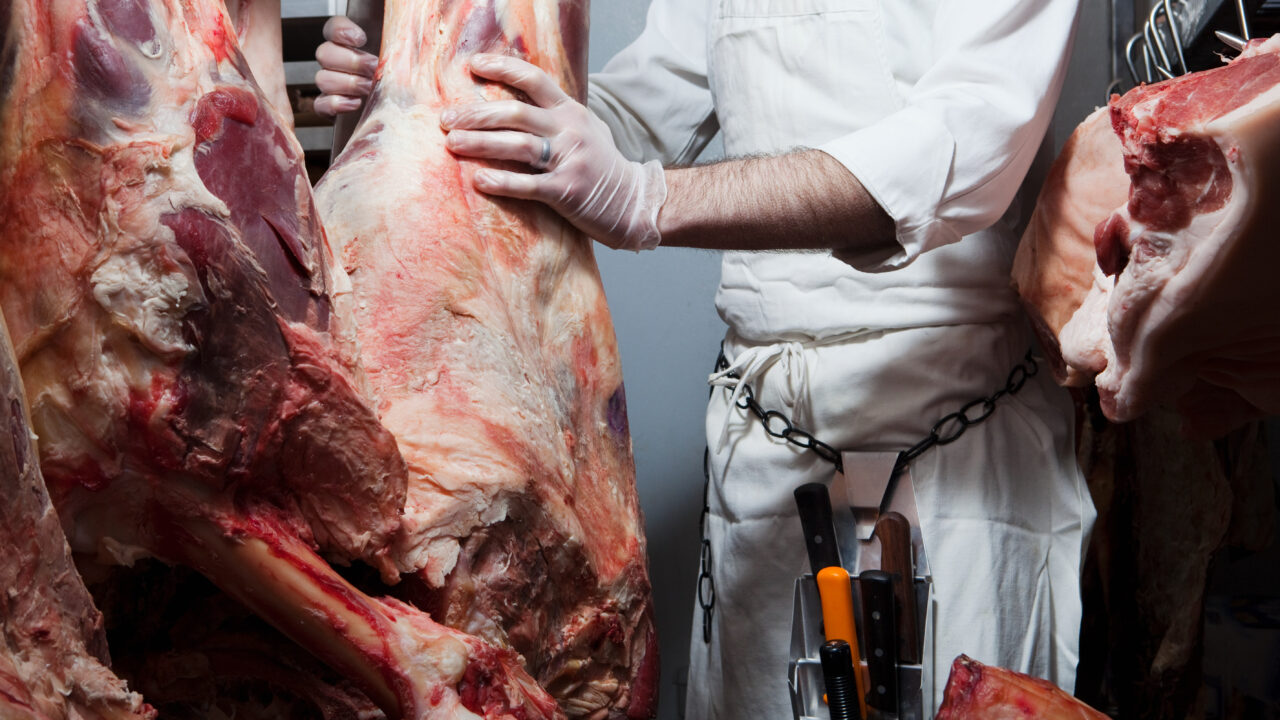850 farmers and land managers across the UK responded to an online survey which aimed to better understand the importance of small abattoirs for farming and meat businesses.
The research was carried out by the Sustainable Food Trust, Soil Association and Rare Breeds Survival Trust.
A new report on the survey’s findings highlights the importance of small and local abattoir services for economic growth, resilient local food systems, public goods and animal welfare.
Survey findings
58% of respondents said their business would not be profitable without selling direct to consumers or through local markets – a model which depends heavily on private kill and further processing services offered by small and local abattoirs.
Many respondents expressed concerns about the animal welfare implications of long-distance transport (typically beyond 30-40 miles) to abattoirs.
They felt it undermines their high on-farm welfare standards – a consequence of limited access to local slaughter facilities – 10% of respondents said they travel over 60 miles to reach their closest abattoir.
Small abattoirs have continued to close across the UK in recent years, posing a severe threat to the future of local meat supply – according to the British Meat Processors’ Association.
In the 1970s there were around 2,500 abattoirs in the UK, but today there are only 203.
A third of survey respondents said their local abattoir had closed in the last five years, while a quarter reported that their abattoir is too busy or fully booked, often due to nearby closures.
Head of policy and campaigns at the Sustainable Food Trust, Megan Perry said: “Small local abattoirs are the lynchpins of local meat supply chains and ongoing closures could ultimately see the widespread loss of local meat.
“This undermines the UK’s resilience, food security, native breeds and nature-friendly farming.
“We need a national plan for local meat that places re-localised and resilient short supply chains at the heart of government food and farming strategy.
“We welcome the work achieved to date through the long-standing small abattoir campaign, sector group and government working groups.
“However, further coordinated effort to address regulatory pressures, administrative burdens, skilled worker shortage and financial pressures is still needed to stem the tide of closures, while new abattoirs will be needed to replace those we have lost,” she said.
Meanwhile, CEO of the Rare Breeds Survival Trust, Christopher Price said: “The local abattoir network lies at the heart of sustainable native breed conservation.
“If an abattoir cannot process small numbers of different breeds, each with their own characteristics, and ideally can return the carcass, it might as well not be there.
“Without that service, the chances of running a viable livestock business are slim. Government has recognised the need to support and invest in farmers as they move towards a more market-focused, environmentally friendly future.
“We now need to see the same level of support and investment for local abattoirs,” he said.
The Soil Association has called for the Food Strategy for England and Wales to recognise and support the important role provided by short supply chains, which provide opportunity for farmers to supply high quality produce into local and added value markets.
Recommendations for small abattoirs
Following the results of the survey, a number of recommendations have been proposed for national and local governments, regulators, industry and producers, to help secure the future of the small abattoir sector.
These include:
- Formally recognising the UK-wide abattoir network as Critical National Infrastructure, ensuring its inclusion in national and local food, farming and land use strategies;
- Reforming regulation and reducing administrative burdens by adopting a risk-based, proportionate approach;
- Ensuring access for small abattoirs to existing and future government funding opportunities;
- Addressing key challenges such as skilled worker shortages and re-valuing animal by-products;
- Strengthening collaboration between farmers, industry and local governments to develop solutions at a local level.
The creation of this survey followed the Food Standards Agency’s (FSA) call for evidence and subsequent discussions regarding the maintenance of the small abattoir discount on meat inspection charges.
The results of this survey were presented to the FSA in April 2025. In June, the FSA acknowledged the importance of the small abattoir sector and the need for the discount to be maintained to ensure the survival of these businesses.

